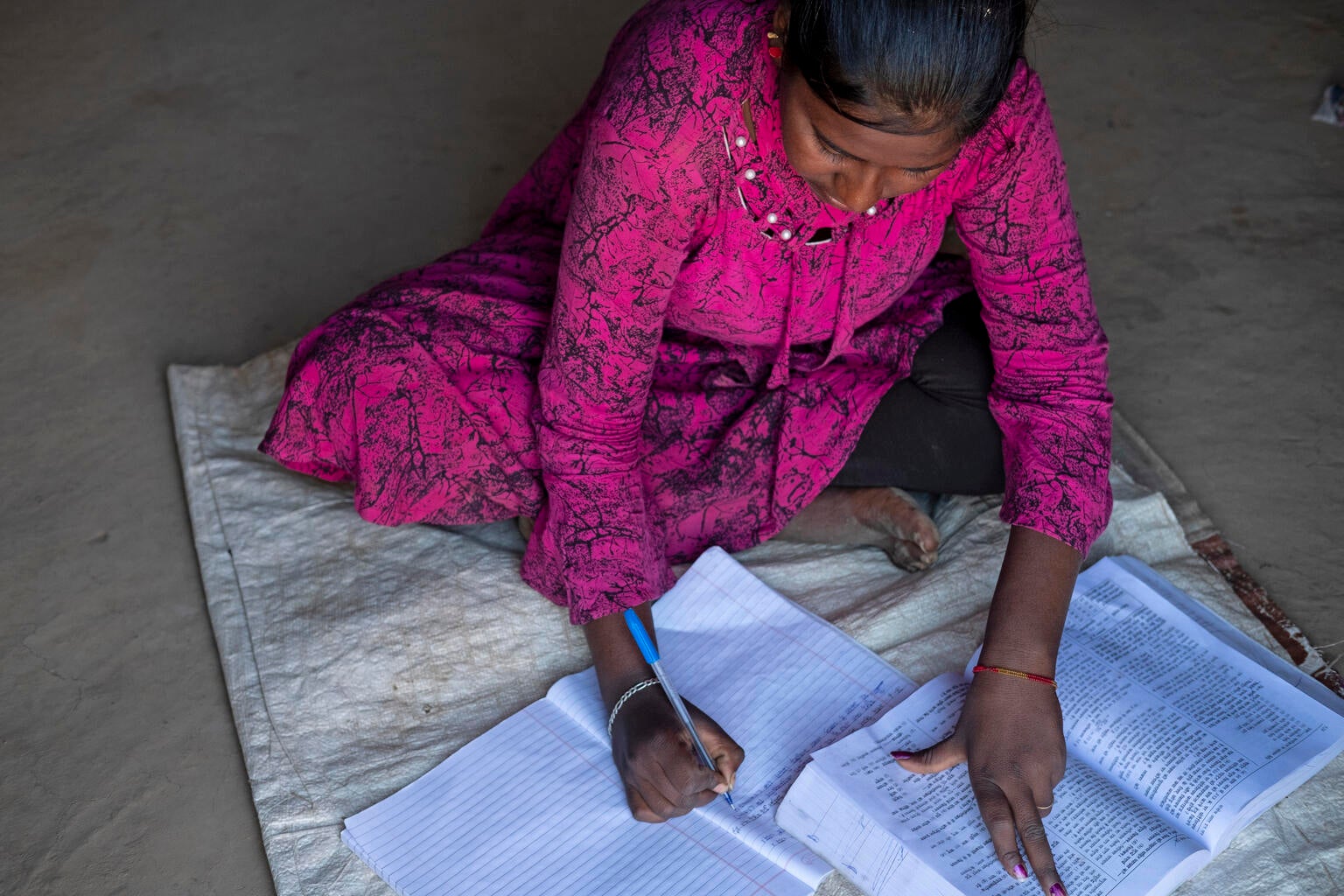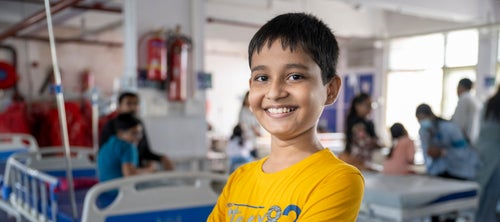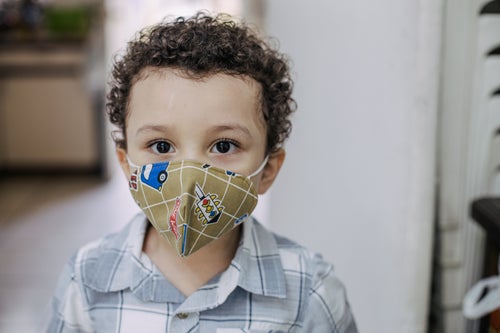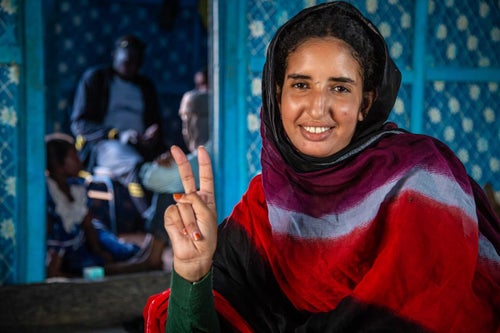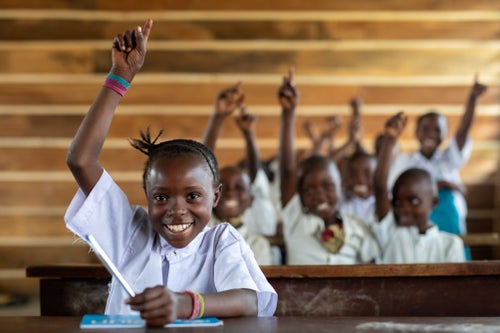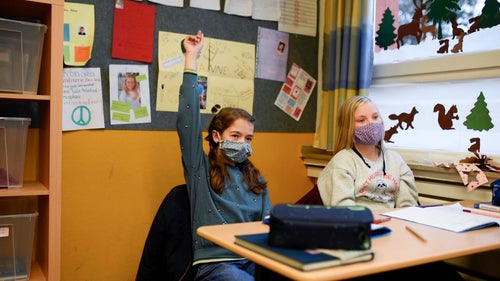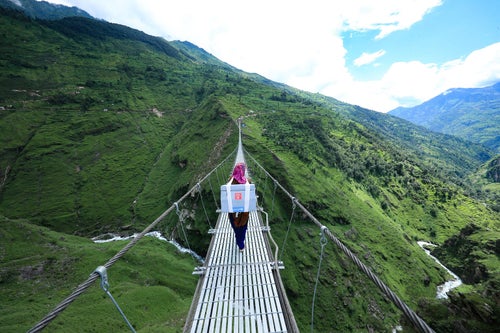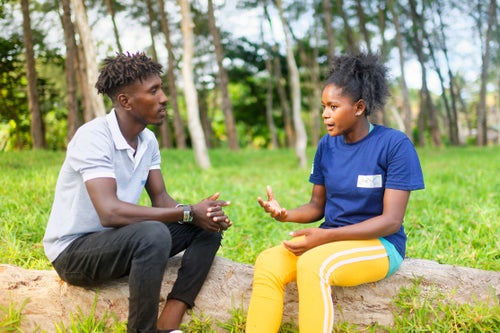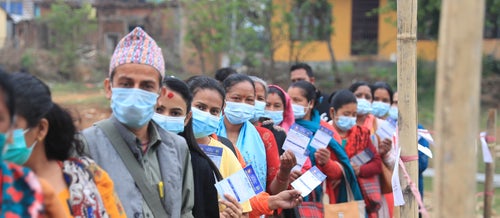Meet 17-year-old Anisha, a science student from north-central Nepal. She has stayed calm and optimistic throughout the COVID-19 pandemic, focusing on her studies and staying connected with her loved ones.
"I try to keep myself as busy as possible. We have online classes right now, so that takes up a lot of time, which is good for me,” Anisha says.
When schools reopened earlier this year and welcomed back their students it was a time of celebration. Anisha was thrilled. Being in the school environment is such a big part of children’s development.
“It was great to reunite with teachers and friends,” Anisha says. “I had missed them so much.”
Three short months later, however, Nepal was hit by the second wave of the pandemic. At its peak, the country experienced case positivity rates as high as 47 per cent which means every second test was coming back positive.
Nepal is located to the North-East of India where the worst outbreak of the pandemic so far recently devastated families and health centres. For Nepalese kids, lockdowns and restrictions were back in place. Anisha’s college closed, and she returned home where she has been for the past month.
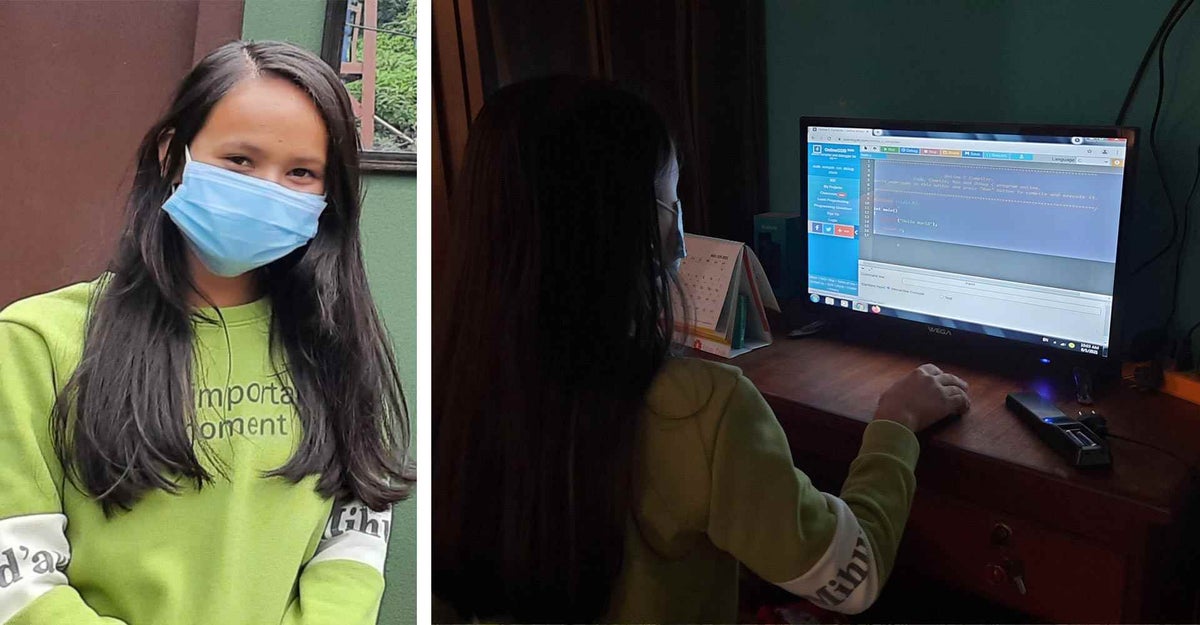
"At least I have my family with me to help me if I’m feeling afraid or have something to share"
This time around coping hasn’t been as easy for Anisha, as her family recently lost a relative to the virus. But she says online classes have helped to keep her engaged and not dwell too long on the present situation.
Continued learning is critical for children for growth and development and that’s why UNICEF works closely with the Nepalese government to continue delivering education services and help every child to keep learning.
Thanks to people like you, we have provided training to 3,100 teachers on psychological support, and educated parents and teachers on the parent’s role in continued learning and development in 14 Nepalese municipalities.
But the vicious second wave of COVID-19 has brought healthcare systems across South Asia to breaking point. UNICEF is on the ground racing to get supplies to the communities most in need, but we still need your help.
Donate Where the Need is Greatest
UNICEF is on the ground racing to get supplies to the communities most in need, but we still need your help.
The power of family
Anisha’s family have been a great support for her throughout the pandemic. Anisha has set an example for her younger brother Ashok and older sister Manisha by studying, watching TV and helping their mother Kalpana around the house during lockdown.
“At least I have my family with me to help me if I’m feeling afraid or have something to share,” Anisha says. “Not everyone is so lucky.”
Her father Basudev is happy with how his children have handled the difficult circumstances.
“They’re all very understanding,” Basudev says. “If nothing else, it’s been good to spend more time with them this past year.”
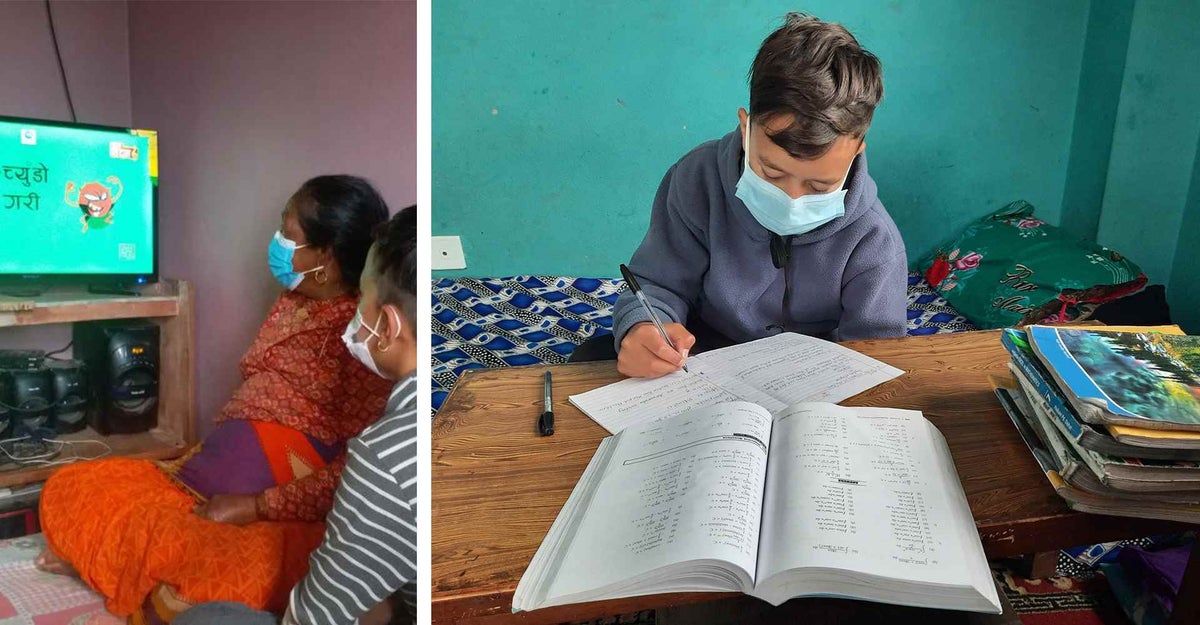
The pandemic isn’t over until it’s over for everyone
While the peak of the outbreak seems to have passed, Nepal’s healthcare system remains under extreme pressure, with many hospitals in capitals at full capacity and daily reports of oxygen shortages.
Throughout the South Asia region, only 2.6 per cent of the total population has been fully vaccinated against COVID-19. Due to the dramatic rise in cases, vaccines are prevented from being delivered across closed borders.
In many countries, personal protective equipment is still in short supply, and some health workers in are yet to receive a single vaccine dose.
UNICEF’s longstanding expertise in the delivery of emergency supplies and vaccines makes us uniquely positioned to provide life-saving support – from big cities to the most remote, hardest to reach parts of the world.
We’re helping to protect frontline workers, so they can continue to provide essential care for children and families. You can help UNICEF deliver essential supplies, like life-saving oxygen, protective wear, sanitation kits and vaccines.
Related articles
Stay up-to-date on UNICEF's work in Australia and around the world



